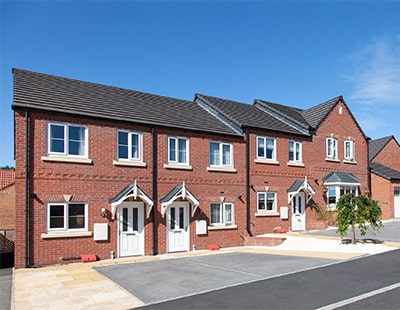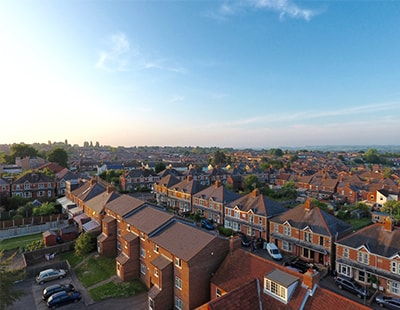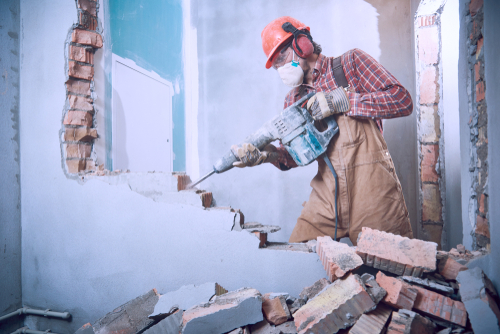Plus, research shows that 39% of all new-build properties are already sold subject to contract or under offer - a 9% rise from the same time in 2020.
What is a new build?
New-build properties are houses or flats which haven’t been lived in previously – even a property with contemporary features isn’t considered a new build if it has had previous owners.
As with any property purchase, new builds are either a leasehold or freehold, and it’s crucial to understand the difference between the two. Generally, a new build flat is often a leasehold while a new build house is generally a freehold.
New builds can be great for many reasons. Firstly, they’re a completely fresh start and can even be bought ‘off plan’ thus allowing you to have some input in the design process. Additionally, they tend to have the latest tech and are generally much more energy-efficient than older homes. Not only that, but new builds are chain-free which takes a lot of the buying stress away. So, if you want a new build – here’s how the process goes:
1. Find your new build
Once you’ve decided on a budget, next you need to find a development you like and do some research into the area along with the developer’s recent record. Sometimes properties are still under construction, but this is totally normal. In this case, you’ll likely view a show home that is a close match or exact replica of your potential new house or flat.
2. Make an offer
Time to make an offer. If accepted, you’ll pay a reservation fee which holds the property while it’s still under development. Don’t worry though, this fee is taken off the eventual purchase price, but is usually non-refundable if you withdraw.
3. Agree on the details
After finding your dream home and agreeing on a purchase price, you’ll need to go through the legalities, making sure to use a solicitor with experience in handling new builds. Once you know the property has access to roads, services, and sewers, you can begin applying for new build mortgages.
4. Move in
Last but not least, once your move is agreed upon, you’ll be presented with two terms: short-stop date and long-stop date. The short-stop date is when your developer anticipates building work to be done and the long-stop date is a later deadline dictating when work must be completed by. Before finalising the deal, make sure you’re happy with these dates.
Have questions about buying a new build? Some of the most common questions to ask are below:
When do you exchange contracts?
Exchanging contracts is the legally binding bit and for new builds, this can often mean waiting for development to finish, with timeframes varying.
You should only exchange contacts once you’ve finalised your mortgage agreement and made arrangements to make the requested deposit, which is usually 10% of the purchase price but can reach 25%. Generally, you’ll be able to exchange around 28 days before the completion date.
When do you start paying council tax on a new build?
As new-build properties are often unfurnished, including no fixtures, fittings, or utilities, it might take a few weeks to move in. Fortunately, if your new build is unoccupied and initially uninhabitable, you’ll receive a 100% council tax discount for the first month after the development is completed. However, after this period you’ll be subject to the standard council tax rates for your area.
What if there’s a delay?
Even with short-stop and long-stop dates, there are instances where developers still struggle to hit completion deadlines. If this happens, your solicitor should have signed a warranty agreement protecting your deposit. You may even be able to withdraw completely and claim a full refund.
To conclude, Ross Counsell, director at regulated property buyers GoodMove, says: “New builds certainly have their appeal, but there are certain things you should know when purchasing a new property ranging from the benefits to the buying process. Potential buyers, particularly first-time buyers, may not be aware of some of these things – therefore, we hope our guide will help people make an informed decision on whether or not to buy a new build.”
For more information on new builds, visit GoodMove's blog here.
*GoodMove is a regulated property buying service









.jpg)
.png)









Join the conversation
Be the first to comment (please use the comment box below)
Please login to comment